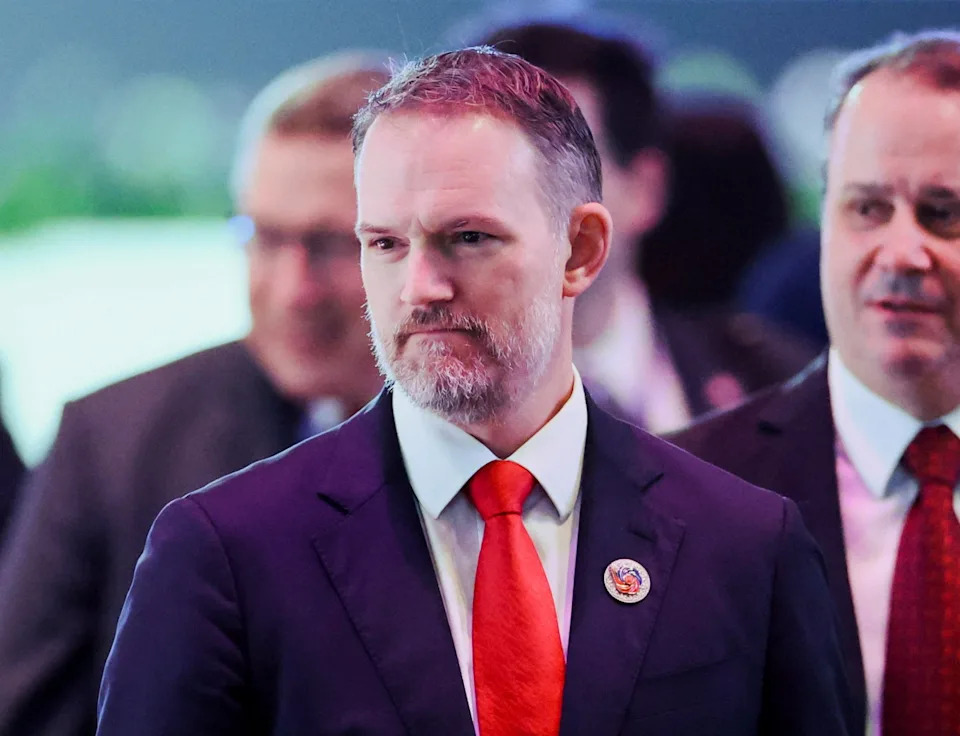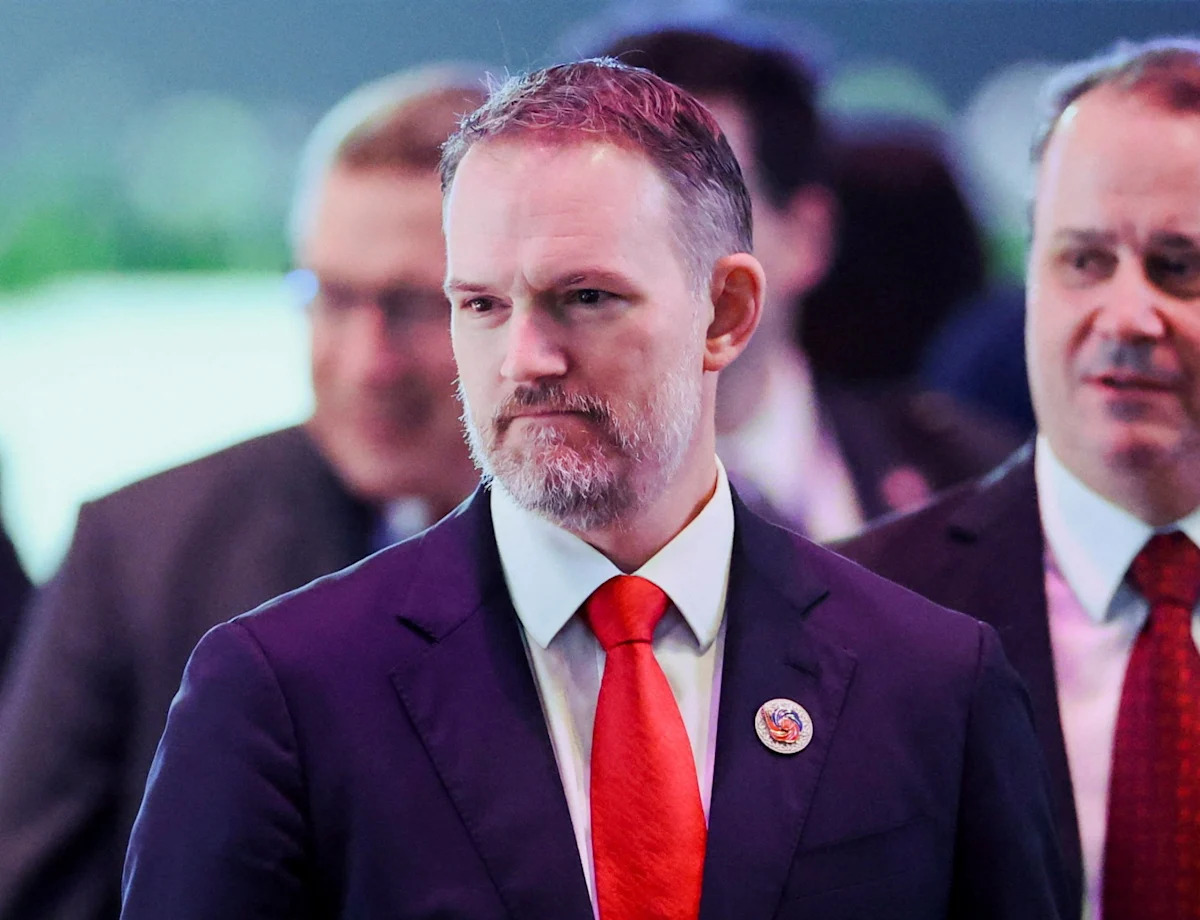Top trade negotiators from India and the United States failed to resolve their tariff dispute during talks on the sidelines of the United Nations General Assembly in New York this week, with New Delhi urging Washington to drop levies linked to Russian energy imports, according to multiple sources with knowledge of the negotiations.
US Trade Representative Jamieson Greer met Indian Commerce and Industry Minister Piyush Goyal on Monday. The pair were joined by US Secretary of State Marco Rubio, Indian Foreign Minister Subrahmanyam Jaishankar and Sergio Gor, a close aide of US President Donald Trump and Ambassador-designate to New Delhi.
Indian officials had initially declined to confirm the Greer-Goyal meeting, but on Friday, the country’s Commerce Ministry acknowledged the talks in a statement.
Do you have questions about the biggest topics and trends from around the world? Get the answers with SCMP Knowledge, our new platform of curated content with explainers, FAQs, analyses and infographics brought to you by our award-winning team.
“The delegation had constructive meetings with the US Government on various aspects of the deal,” it read, adding that both sides exchanged “views on possible contours” of the deal.
“It was decided to continue the engagements with a view to achieving the early conclusion of a mutually beneficial Trade Agreement,” the statement added, without providing a timeline.
According to government sources, both sides hope to strike a deal by the end of September to make way for Trump to visit India in the Autumn for a planned Quad leaders’ summit. However, this may be postponed to next year if the trade dispute continues.
The visit, from Monday to Wednesday, marked the first high-level trade delegation visit by India to the US since Trump imposed punitive tariffs against New Delhi in August to help “end the war in Ukraine“.
During the talks this week, Russian oil purchases by India remained the biggest point of contention. The Indian side demanded the removal of linked tariffs, with their US counterparts arguing that a deal was not possible without New Delhi reducing its purchases from Moscow.
The failure to reach any agreement with Washington has frustrated Indian officials, particularly as the Trump administration has had a series of productive high-level meetings with Chinese officials, including a call between the US president and his counterpart, Xi Jinping, last week.
According to two people familiar with the talks, the Indian side is pushing for overall tariffs to go down to below 20 per cent to keep Indian exports competitive against east Asian manufacturing hubs like Vietnam, Malaysia, the Philippines and Thailand, which have negotiated their tariffs down to the 19-20 per cent range.
Diplomatic sources said further rounds of talks will be needed to resolve outstanding issues, including the stalemate over Russian oil.
Indian officials contend that cutting off purchases from Moscow would leave the world’s most populous country reliant on other sanctioned suppliers such as Iran and Venezuela.
They argue that the United States cannot supply enough crude at prices affordable for India’s 1.4 billion people. During Trump’s first term, New Delhi was already forced to halt imports from Iran and Venezuela.

US Trade Representative Jamieson Greer met Indian Commerce and Industry Minister Piyush Goyal on Monday at the United Nations General Assembly in New York. Photo: REUTERS alt=US Trade Representative Jamieson Greer met Indian Commerce and Industry Minister Piyush Goyal on Monday at the United Nations General Assembly in New York. Photo: REUTERS>
In their talks with US counterparts and lawmakers, senior Indian officials have pointed out that other countries like the European Union and China also buy significant amounts of Russian oil and gas.
New Delhi also lashed out on Friday at Mark Rutte, the head of Nato, after he praised Trump’s Russian-linked tariffs and suggested that the levies had forced India’s Prime Minister Narendra Modi to contact Russian President Vladimir Putin.
“This immediately impacts Russia because Delhi is now on the phone with Putin in Moscow, and Narendra Modi asks him, ‘Hey, I support you, but could you explain to me the strategy because I have now been hit by 50 per cent tariffs by the United States’,” Rutte said in the interview published on Thursday.
“The statement is factually incorrect and entirely baseless,” Jaiswal told reporters on Friday, adding that “at no point has Prime Minister Modi spoken with President Putin in the manner suggested. No such conversation has taken place.”
Highlighting Trump’s mockery of Europe for “funding the war against themselves” for the continent’s own purchases of Russian energy in his UNGA speech on Tuesday, Jaisawal said that EU, G7, and Nato “should also look at halting” their imports from Russia.
“There cannot be double standards on the issue”, he added.
The narrative chimed with Jaishankar’s sharp remarks at a meeting of G20 foreign ministers at the UN on Thursday, where he slammed the punitive measures against Global South countries in order to achieve peace.
“Making energy and other essentials more uncertain in an economically fragile situation helps no one,” he told his counterparts. “Double standards are clearly in evidence.”
This article originally appeared in the South China Morning Post (SCMP), the most authoritative voice reporting on China and Asia for more than a century. For more SCMP stories, please explore the SCMP app or visit the SCMP’s Facebook and Twitter pages. Copyright © 2025 South China Morning Post Publishers Ltd. All rights reserved.
Copyright (c) 2025. South China Morning Post Publishers Ltd. All rights reserved.

